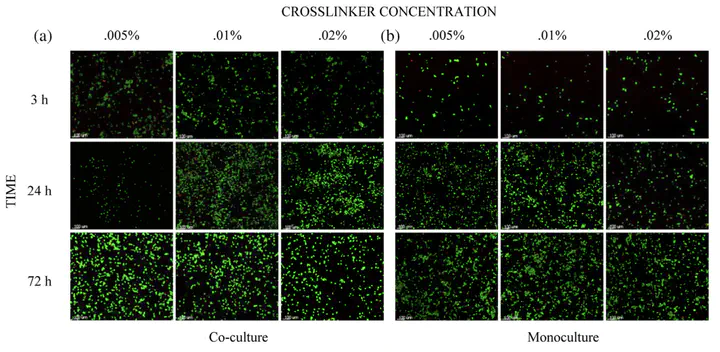Influence of Hydrogel Stiffness and Fibroblasts on Macrophage Polarisation: Implication for the Inflammatory Response to Vocal Fold Biomaterials.
 Live/dead confocal images of macrophages
Live/dead confocal images of macrophages
Résumé
The physical properties of a biomaterial play an essential role in regulating immune and reparative activities within the host tissue. This study aimed to evaluate the immunological impact of material stiffness of a glycol-chitosan hydrogel designed for vocal fold tissue engineering. Hydrogel stiffness was varied via the concentration of glyoxal cross-linker applied. Hydrogel mechanical properties were characterized through atomic force microscopy and shear plate rheometry. Using a transwell setup, macrophages were co-cultured with human vocal fold fibroblasts that were embedded within the hydrogel. Macrophage viability and cytokine secretion were evaluated at 3, 24, and 72 hr of culture. Flow cytometry was applied to evaluate macrophage cell surface markers after 72 hr of cell culture. Results indicated that increasing hydrogel stiffness was associated with increased anti-inflammatory activity compared to relevant controls. In addition, increased anti-inflammatory activity was observed in hydrogel co-cultures. This study highlighted the importance of hydrogel stiffness from an immunological viewpoint when designing novel vocal fold hydrogels.